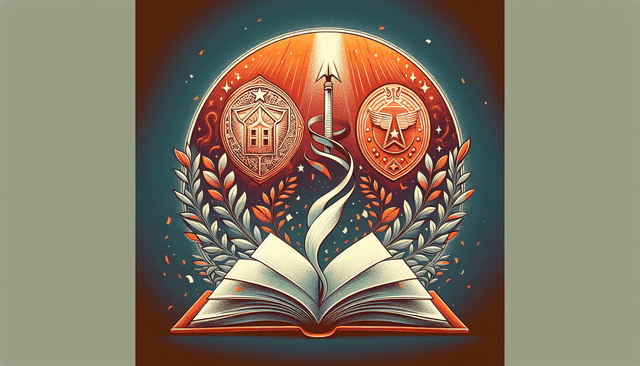Table of Contents
Are you a new author feeling overwhelmed by the publisher search? You’re not alone! The world of publishing can be tricky to navigate, with so many options out there. It’s easy to feel lost when deciding where to submit your hard-earned manuscript.
But don’t worry! If you stick with me, I’ll help you uncover the best publishers for new authors. From traditional houses to self-publishing avenues, there’s a perfect fit waiting for you.
We’ll explore top publishers, what to consider when choosing one, and how to make your approach shine. Plus, get inspired by success stories and find valuable resources to kickstart your publishing journey!
Key Takeaways
- Research top publishers like Penguin Random House or HarperCollins, as well as supportive smaller presses.
- Consider hybrid publishing for a balance of support and control over your book.
- Self-publishing platforms like Amazon KDP offer full control but require marketing effort from you.
- Evaluate publishers based on their genre track record, distribution channels, and royalties.
- Craft a strong query letter tailored to each publisher and follow their submission guidelines.
- Network at writing conferences to gain valuable connections and feedback.
- Use resources like Reedsy and QueryTracker to aid in your search for a publisher.

Best Publishers for New Authors
Finding the right publisher as a new author is crucial for your writing career.
It’s no secret that traditional publishing can be challenging to break into, especially for first-timers.
However, some publishers specialize in welcoming new voices, making it a bit easier to get your work into the right hands.
For instance, publishers like Greenleaf Book Group and Balboa Press are known for their support of new authors.
You should also explore smaller presses; they often have more personal relationships and are more open to new talent.
Top Traditional Publishers for New Authors
If you’re aiming for a traditional publisher, start by researching well-regarded names like Penguin Random House and HarperCollins.
These giants have established systems for manuscript submission, mostly through literary agents.
However, certain divisions or imprints within larger publishers focus specifically on debut authors.
For example, Thomas & Mercer is known for its commitment to new mystery and thriller writers.
Another option is to attend writing conferences where you can pitch your manuscript directly to editors.
This approach can yield immediate feedback and allow you to showcase your work in a lively setting.
Best Hybrid Publishers for New Authors
Hybrid publishing merges the best of both worlds: traditional and self-publishing.
With hybrid publishers, you typically pay for certain services, which gives you more control over the publishing process.
She Writes Press is a great example; they prioritize female authors and focus on quality.
Hybrid models also provide authors with better revenue options than traditional routes.
Another notable mention is BookBaby, which assists writers in both publishing and distribution.
Self-Publishing Platforms for New Authors
If you’re looking for full control over your work, self-publishing is a fantastic option.
Platforms like Amazon Kindle Direct Publishing (KDP) have made it easier than ever to get started.
After you format your manuscript, all you need to do is upload it and set your price. It’s that simple.
Another solid choice is Smashwords, which allows you to distribute your eBook to a range of ebook retailers.
Don’t forget about IngramSpark, which offers widespread distribution options for both print and eBooks.
Self-publishing gives you the freedom to market your book, which can be daunting but also deeply satisfying.

Things to Consider When Choosing a Publisher
Choosing a publisher isn’t just about their reputation; it’s about finding a match for your goals as an author.
First, consider the publisher’s track record with books in your genre.
Look for publishers with a strong catalog in areas similar to your manuscript.
Next, evaluate their distribution channels.
Do they have access to online and brick-and-mortar retailers?
This can significantly impact your book’s visibility and sales.
Also, pay attention to the royalties offered.
Understanding the percentage you will earn per book sold should be clear from the start.
Lastly, check for any clauses that might affect your rights and creative control.
Read through their contracts carefully, and don’t hesitate to seek advice from an experienced literary agent.
How to Approach Publishers as a New Author
Approaching publishers can feel daunting, especially if it’s your first time.
Begin by crafting a strong query letter that showcases your manuscript’s hook and your background.
Make sure to tailor each letter to the specific publisher you’re contacting.
It’s also crucial to include a compelling synopsis of your book along with sample chapters.
Research the submission guidelines for each publisher before you send anything.
Each publisher has its own preferences, and following these details can make or break your submission.
Networking is another key step. Engage in writing communities, attend industry conferences, and participate in workshops.
These settings can offer invaluable connections and increase your chances of getting noticed.
If a publisher requests a manuscript, send it promptly, keeping your communication professional and friendly.
Success Stories: New Authors and Their Publishers
There are countless success stories of new authors who found the right publisher.
One example is Matt Haig, who struggled before landing a deal with Canongate.
His persistence paid off when his book went on to become a bestseller.
Another inspiring tale is that of Angie Thomas, whose debut novel, “The Hate U Give,” was picked up by Balzer + Bray and gained immense popularity.
These stories highlight that a solid manuscript and determination can resonate with publishers.
They also demonstrate the importance of finding a publisher who believes in you and your work.
As you navigate your own journey, remember that every successful author once faced the same hurdles.
Resources for New Authors Seeking Publishers
As a new author, leveraging available resources can streamline your search for the right publisher.
Start with websites like Reedsy and Writer’s Market where you can find listings of publishers that welcome new authors.
Joining writing groups on social media can also provide insights and support from fellow authors.
Conferences like AWP or local book fairs often feature sessions on how to pitch your book and opportunities to meet editors.
Don’t hesitate to use platforms like QueryTracker for tracking your submissions and managing your contacts.
Additionally, consider seeking mentorship from established authors or literary agents who can offer personalized guidance.
Utilizing these resources effectively can make your publishing journey smoother and more informed.

Success Stories: New Authors and Their Publishers
There are countless success stories of new authors who found the right publisher.
One example is Matt Haig, who struggled before landing a deal with Canongate.
His persistence paid off when his book went on to become a bestseller.
Another inspiring tale is that of Angie Thomas, whose debut novel, “The Hate U Give,” was picked up by Balzer + Bray and gained immense popularity.
These stories highlight that a solid manuscript and determination can resonate with publishers.
They also demonstrate the importance of finding a publisher who believes in you and your work.
As you navigate your own journey, remember that every successful author once faced the same hurdles.
Resources for New Authors Seeking Publishers
As a new author, leveraging available resources can streamline your search for the right publisher.
Start with websites like Reedsy and Writer’s Market where you can find listings of publishers that welcome new authors.
Joining writing groups on social media can also provide insights and support from fellow authors.
Conferences like AWP or local book fairs often feature sessions on how to pitch your book and opportunities to meet editors.
Don’t hesitate to use platforms like QueryTracker for tracking your submissions and managing your contacts.
Additionally, consider seeking mentorship from established authors or literary agents who can offer personalized guidance.
Utilizing these resources effectively can make your publishing journey smoother and more informed.
FAQs
New authors can consider traditional publishers, hybrid publishers, and self-publishing platforms. Each option offers different benefits, from editorial support to creative control and potential financial returns.
New authors should research potential publishers, tailor submission materials to their guidelines, and network with industry professionals. A well-crafted query letter or book proposal can significantly improve chances.
Authors should consider the publisher’s reputation, distribution channels, payment terms, support services, and contract terms. Aligning these factors with personal and professional goals is essential for long-term success.
Resources like writer’s workshops, industry-related websites, publishing guides, and social media groups can provide valuable information. Networking with experienced authors can also offer insights and support in finding the right publisher.



